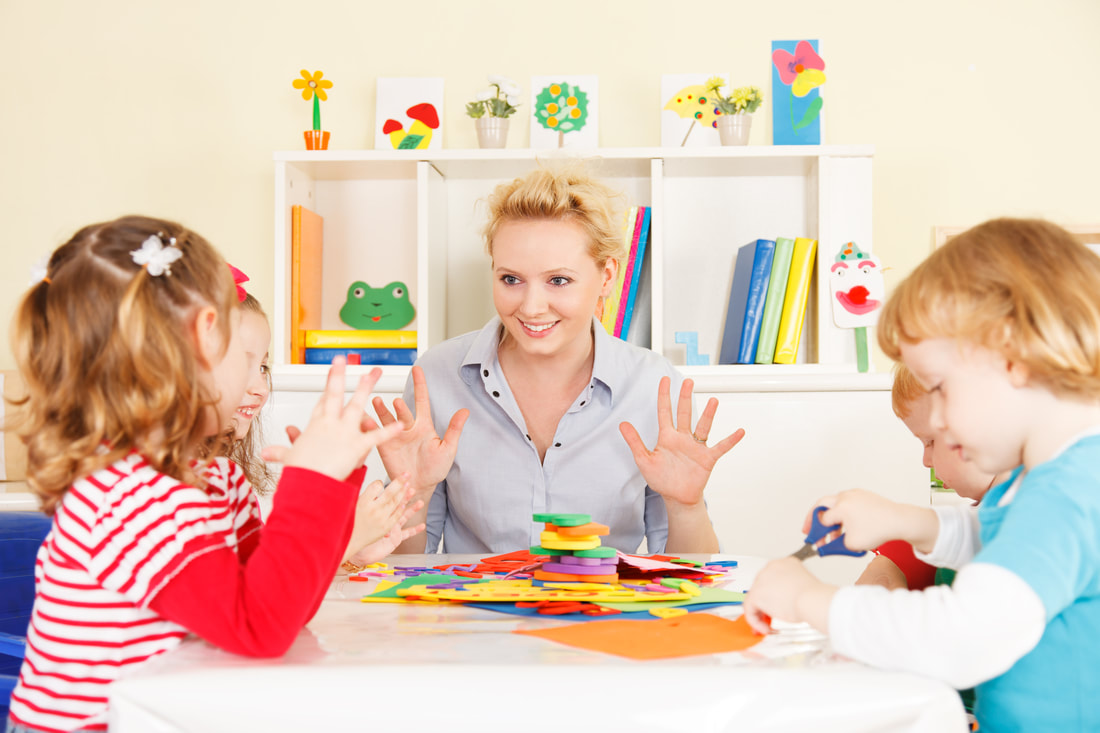 Would you like to build children’s self-regulation skills while strengthening your relationship and having fun? Check out these games! Would you like to build children’s self-regulation skills while strengthening your relationship and having fun? Check out these games! |
First, here’s a little info about self-regulation:
Self-regulation is a complex process that allows children to appropriately respond to their environment. In other words, it helps them manage their emotions, thoughts and behavior.
It’s an active, intentional process that:
- Develops gradually
- Includes physical, emotional, behavioral and cognitive (thinking) skills
- Takes lots of practice and repeated learning opportunities
- Requires intentional planning by the teacher
Here are some examples of self-regulation skills that children learn over time:
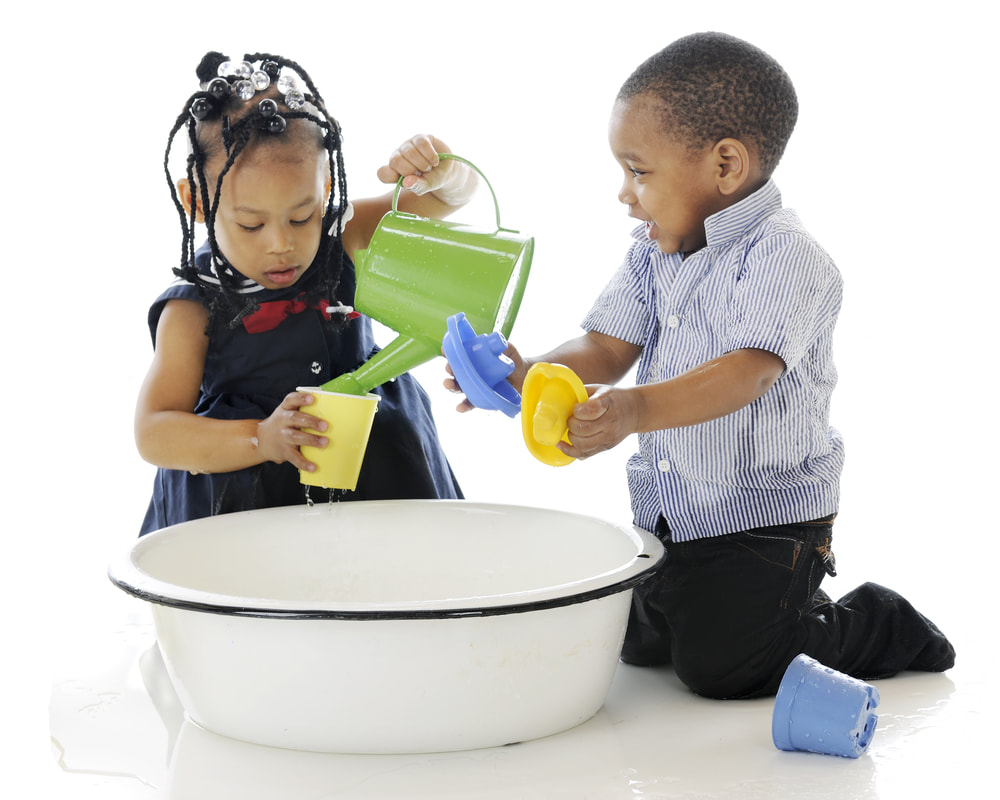 Taking turns
Taking turns- Following directions
- Using words to communicate
- Staying on task
- Ignoring distractions
- Inhibiting impulsivity
- Planning one’s actions
- Reflecting on one’s thinking
- Cooperating with others
- Demonstrating empathy
And now, 11 Games that Develop Self-Regulation:
Most of these games come from: Tominey & McClelland (2011). Red light, purple light: Findings from a randomized trial using circle time games to improve behavioral self-regulation in preschool. Early Education and Development, 22 (3). This research study shows that playing certain games helps children develop self-regulation skills. Try one of these or play any game that helps children stop and think, such as Simon Says. Just make it fun!
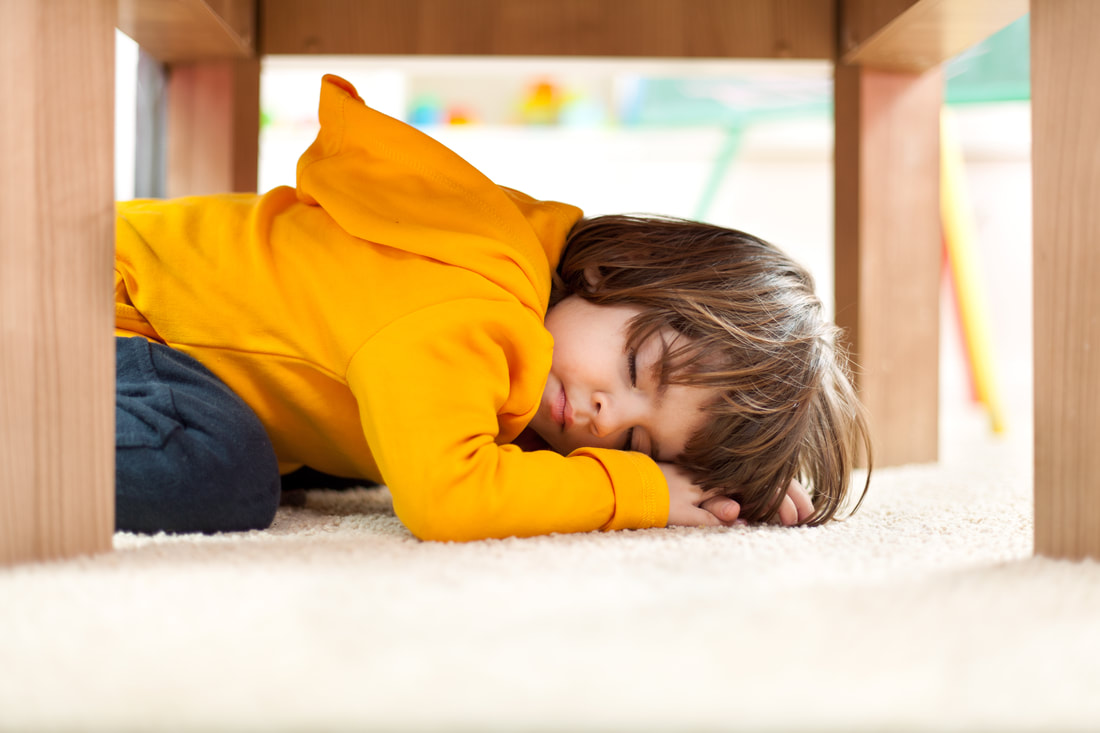
Relaxation Games
- Sinking Activity – Tell children to imagine that their bodies are very heavy and sinking to the floor, (guided relaxation)
- Breathing Buddies – Children take deep breaths, lying on their backs with a stuffed animal on their bellies
- “Eeping On” – Gently bounce a soft fidget toy on the child’s body
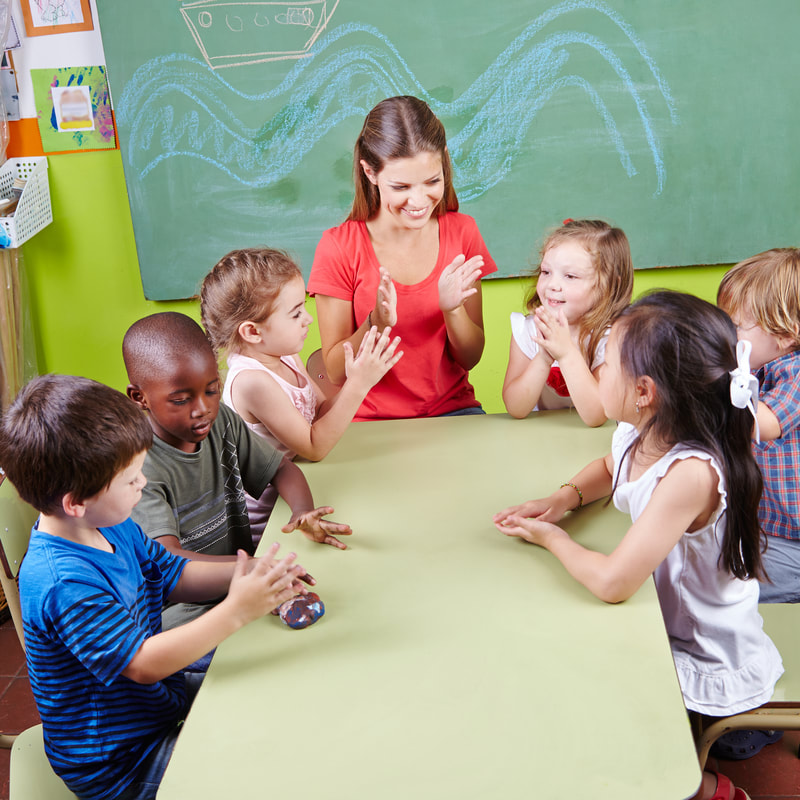 Refocusing Games
Refocusing Games
- Clapping Exercise – Use a series of claps with a certain pattern
- Conducting an Orchestra – Wave a conductor’s baton quickly or slowly and have children play instruments accordingly
- Drum Beats – Give directions for children to move a certain way when you beat the drum
- Elephant Stampede – Direct the children to mimic sounds of elephants close or far away
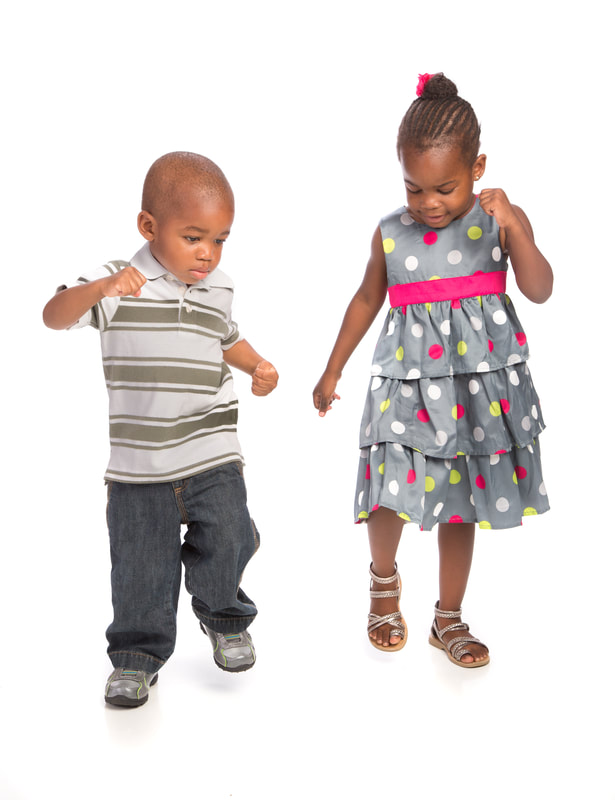 Behavioral Regulation Games
Behavioral Regulation Games
- Head-Toes-Knees-Shoulders – Change up the parts to point to as you sing the song. Have children point to one body part when you name another.
- The Freeze Game – Children dance and freeze into position when the music stops
- Mirror Game – Children take turns making different faces for a partner to imitate
- Sleep, Sleep! – Direct children to pretend to sleep then wake up as different animals
Have fun playing, connecting, and building self-regulation skills!
Let me know how it goes, and please share some games that work for your children.
Resources:
- Florez, I. (2011). Developing young children’s self-regulation through everyday experiences. Young Children, 66 (4),46-51
- Gillespie, L. G., & Seibel, N. (2006). Self-regulation: A cornerstone of early childhood development. Beyond the journal: Young Children on the web. Retrieved from http://journal.naeyc.org/btj/200607/Gillespie709BTJ.pdf
- Rice, M. Understanding the importance of self-regulation for preschoolers. http://www.ttacnews.vcu.edu/2012/02/
I’m excited to share my blog!
Whether you are a child care provider or administrator, a teacher, a parent, or a helping professional who supports young children and families, I hope you get some helpful tips to make your job easier and more enjoyable!
- Keeping Children Safe in Summer Heat: Tips for 2025 - July 14, 2025
- Books on Black History Month for Young Children - February 5, 2024
- Winter Play and Book Ideas for Young Children - January 8, 2024
- Diane Goyette
- No Comments
